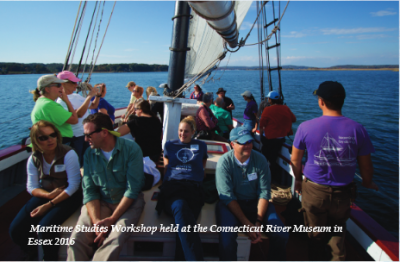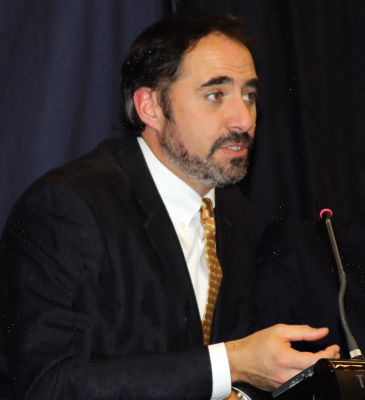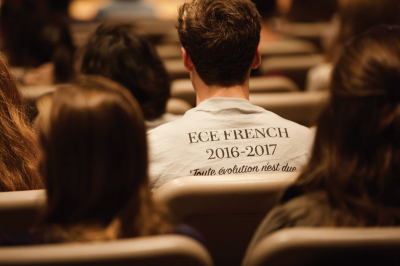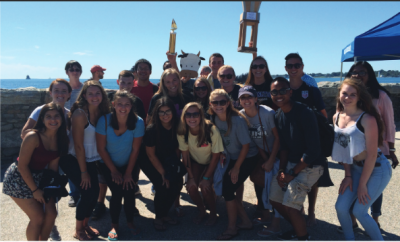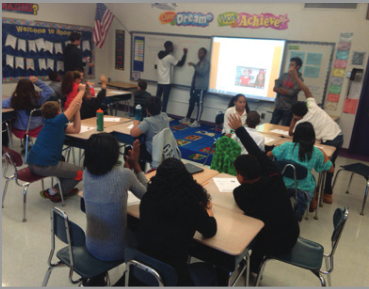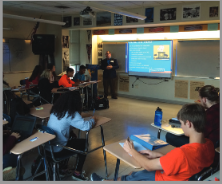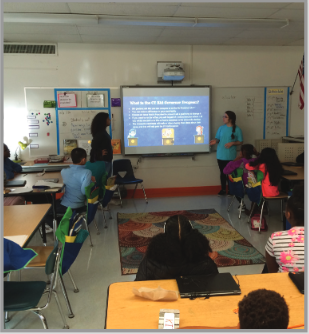By Magdalena Narozniak
For the first time, the UConn Early College Experience offered Small Grants for Classroom and Program
Development to our high school partners. The office set aside $10,000 for the UConn ECE community available to high school instructors through a competitive grant process. The purpose of the grants is to
create an opportunity for classroom and community development for a UConn ECE course. The classroom grant can be used for books, technology, equipment or other materials that enable students to learn the subject matter or skills. Community grants may include projects that have a large impact on the surrounding community, including projects that eliminate an eyesore, make communities healthier, or foster creativity. Applications must have the support of students, principals, and UConn faculty coordinators.
The office received fifteen incredibly competitive applications from schools all over Connecticut. Applicants sought funds for textbooks and advanced pieces of equipment like Spectrophotometers, miniPCRs, and a theremin, campus visits, and a series of nationally recognized speakers. Projects for the community included community gardens, a butterfly sanctuary, a project targeting the hygiene of young impoverished women, and a solar panel system. Out of these incredible proposals, six winners were fully funded and two applications were partially funded.
Among them:
William Schultz and several other instructors of Enfield High School applied for the purchase of a solar
panel system and additional physical outputs to be used in the classroom and in community outreach events for demonstrations and experiments relating to renewable energy conversations. Experiments will include electrical, chemical, and mechanical energy conversions in the UConn ECE Chemistry, Biology, Environmental Science and Physics courses.
April Kelley of Laurelton Hall at Academy of Our Lady of Mercy applied for funds to build a hoop-
style greenhouse in the corner of the campus designated for green learning. The intention is to use the greenhouse as an outdoor classroom, to let students participate in a farm-to-table experience and to allow community gardening, fostering stronger ties between students and senior citizens living in the senior complex next door. Students of UConn ECE Environmental Science will construct the greenhouse.
Lisa-Brit Walhberg and Sarah King of the Master’s School proposed a collaborative community-based learning project designed to address the psychosocial effects of war and resettlement on refugees in Connecticut. UConn ECE Political Science and English students will be instructed in journal making, journal writing, and art activities to foster and develop global citizenship, social justice and diverse cultural awareness. Students will be trained through IRIS (Integrated Refugee & Immigrant Services) of New Haven about the Syrian crisis and plan community activities involving Syrian refugees.
And briefly, Jan Frazier of Waterford High School received funding for the publication of a minitextbook, edited and put together by students of UConn ECE Latin. Equipment purchases of
spectrophotometers to upgrade laboratory facilities were also approved for Jane Carey Lyon of Windham High School and Sharon Geyer of Woodstock Academy. A joint application of Jennifer Gampel at Masuk High School and Jamie Cosgrove at Christian Heritage Academy for the purchase of a miniPCR and a PTC Taster Lab was also approved.
The office will be providing grants again next year. The deadline to apply will be October 15, 2017. We encourage all our schools to apply. To be eligible for a grant, applicants must be instructors of a currently running UConn ECE course and complete the entire grant application available on our website.
All projects must be completed within the school year.
Congratulations to all our winners!
We look forward to seeing the progress on the projects.


